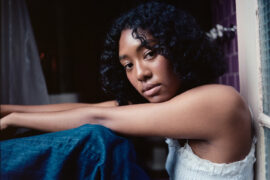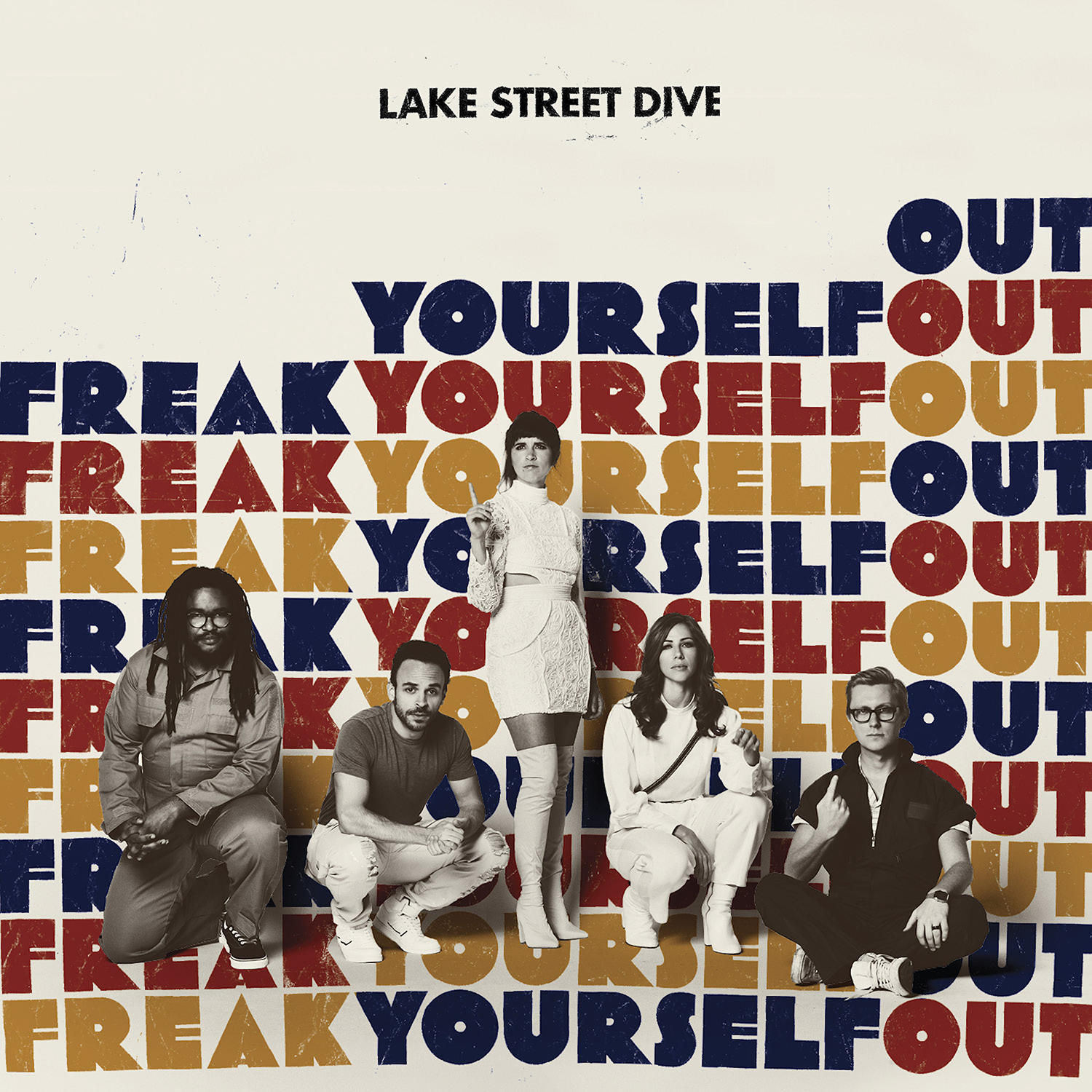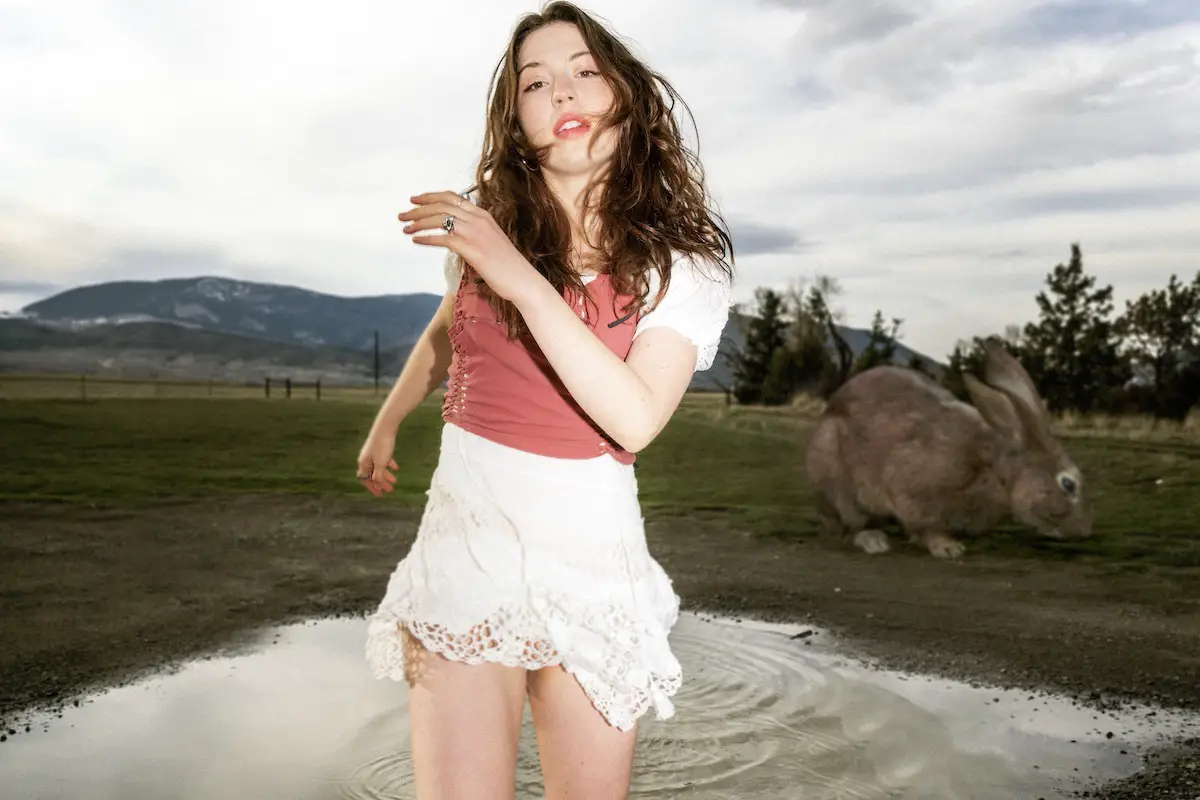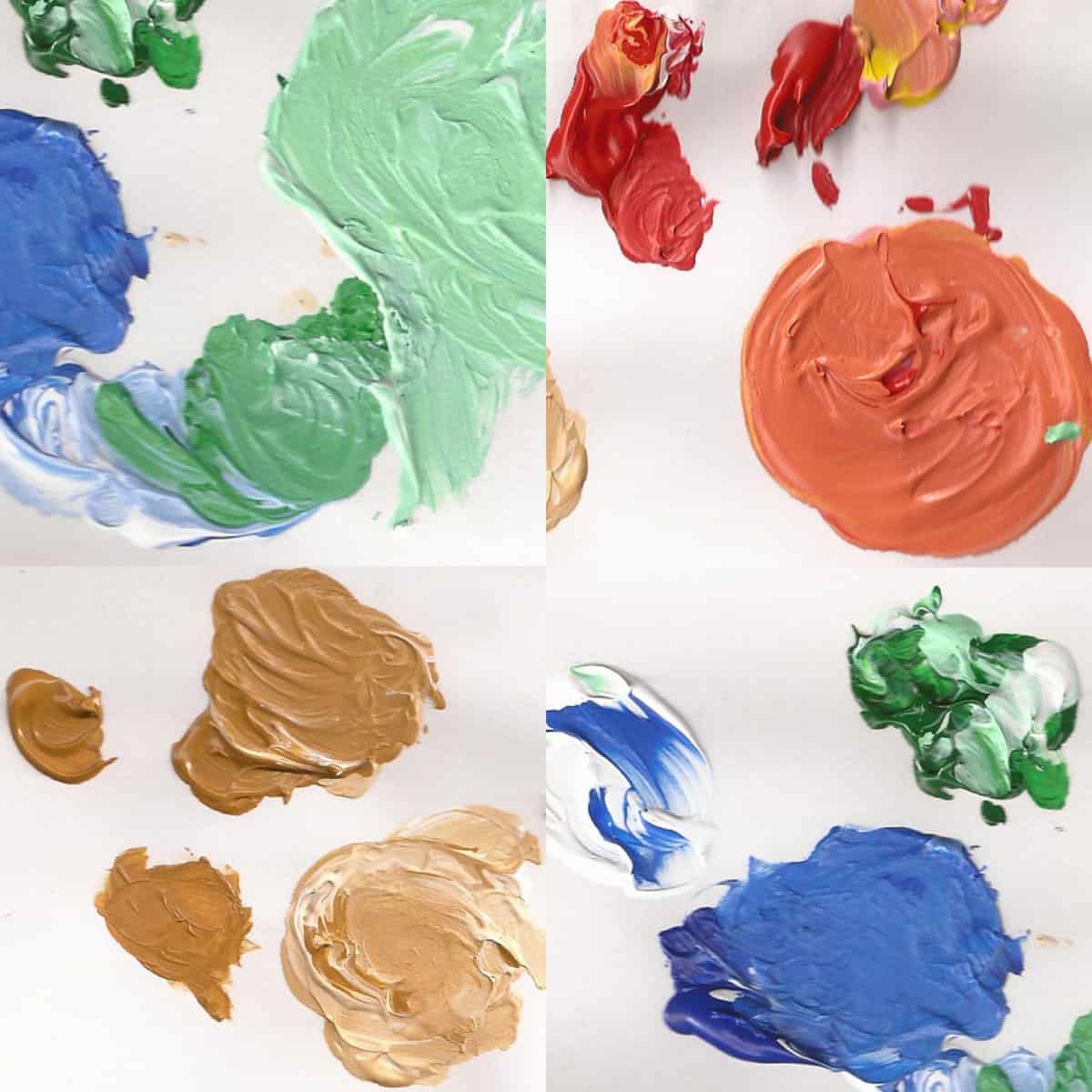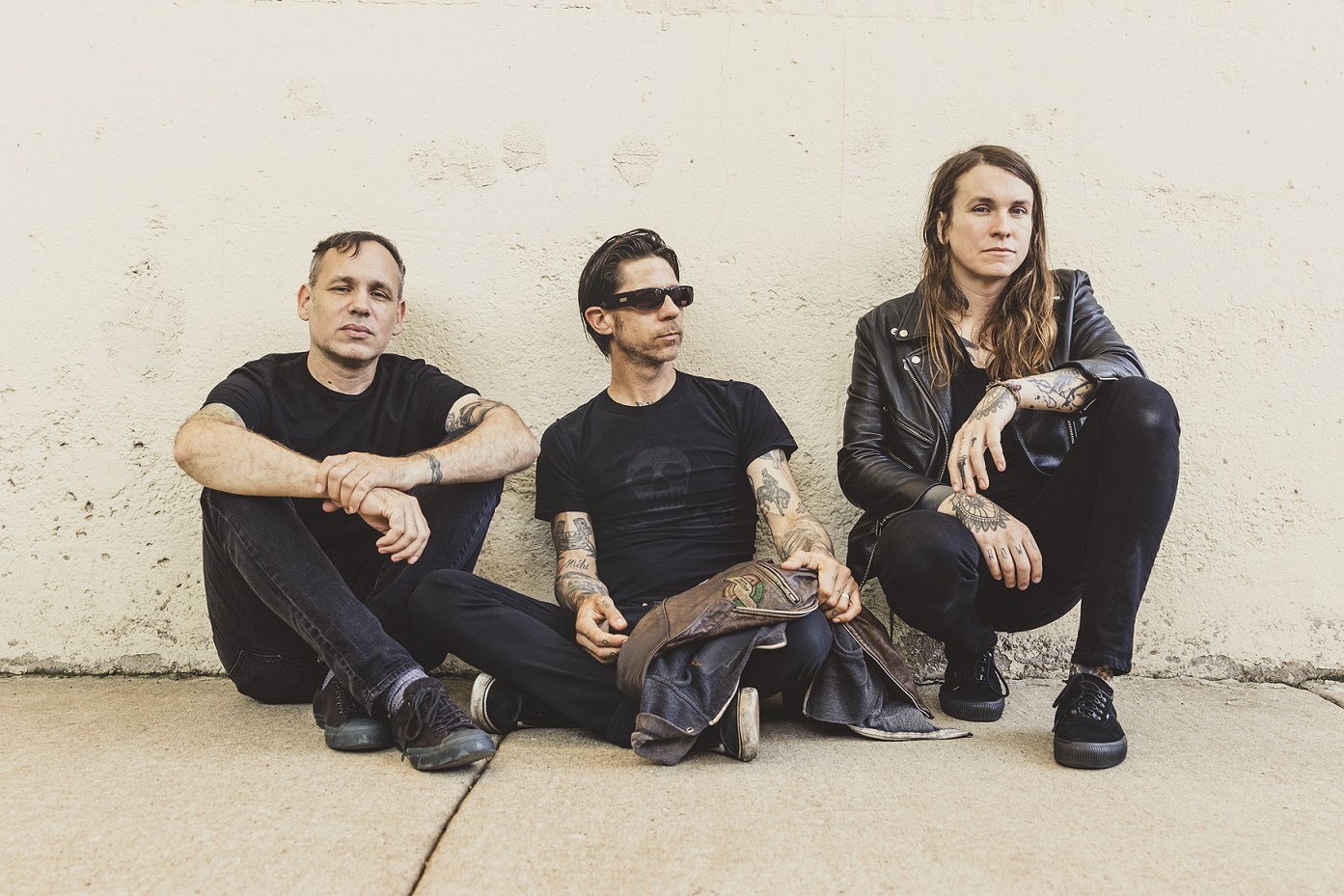The Japanese House’s sophomore album ‘In the End It Always Does’ is refreshingly vulnerable, touching on issues of sexuality and heartbreak alongside plucky keys, bright strings, and intimate production. Speaking to Atwood Magazine, Amber Bain discusses her unfiltered approach to songwriting, queerness, circles and cycles, and translating her songs to the stage.
‘In the End It Always Does’ – The Japanese House
Raw honesty is a trademark of Amber Bain’s.
Better known by her moniker, The Japanese House, Bain is an expert in dreamlike chimes and gut punch lyrics. This vulnerability almost feels ironic considering the speculation around her music’s roots. In 2015, Bain released her first single, “Still,” to widespread praise and positive critical reception under Dirty Hit. Listeners quickly began to speculate over The Japanese House’s identity, some believing the single was a side project of The 1975’s Matty Healy.
It’s easy to paint a narrative of a shy, guarded teen from Buckinghamshire exploring her relationships by quietly releasing an earthy, yearning track under an elusive name, eventually shedding this guarded facade to release an achingly honest sophomore album touching on gender identity, sexuality, and heartbreak.
However, Bain tells me it’s just the opposite. “The anonymity was a thing papers or the media liked to say,” she admits. “Actually, I was an 18 year old and didn’t think anyone was going to hear my music.” Although unintentional, the mystery of The Japanese House contrasted with lyrics such as “I still wake up with you every morning, like I’m still dead” created an enticing dichotomy.
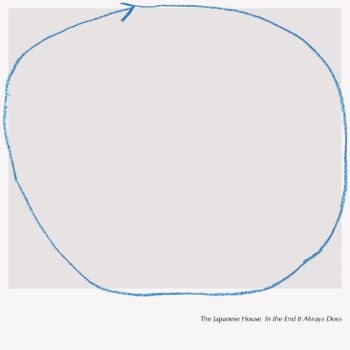
Despite these narratives, there is nothing elusive or evasive about The Japanese House.
Bain’s work navigates topics familiar to many through a unique lens. Her queer identity informs these experiences, and she believes her music deeply resonates with queer and straight listeners alike due to her tender honesty.
“I don’t think anything I’m talking about is wrong,” Bain asserts. “I think treating it as though I’m talking about any other straight relationship is the only way I would ever approach it.”
This nonchalance removes a stigma that surrounds much of queer music, where pronouns are obfuscated in the name of plausible deniability, and queerness is implied.
Meanwhile, Bain paints a picture of queerness in all its forms, whether that be devastating yearning or raunchy fantasies. “I had to go into the other room / She sent me something, and I can’t think about anything else / I guess it could wait ’til a later date / Now I’m picturing you, and you were touching yourself,” Bain drawls in “Touching Yourself.” For Bain, queer love is not revolutionary or “avant-garde.” It’s simply the reality, for her and many of her fans.
The one facet of music that Bain remains highly protective of is songwriting.
“I don’t really let anyone in because I find it hard to create unless I’m completely in contact with my subconscious,” she tells me. “I think being not a man… it’s really easy to want to prove yourself because everyone expects that you don’t write your own songs and you don’t know how to produce.”
With In the End It Always Does, Bain had to unlearn much of her self-consciousness and hesitation to allow other people into her songwriting process, which led to her co-writing “Morning Pages” with MUNA’s Katie Gavin. The delicate track blends the two singers’ vocals seamlessly, stirring you into a cacophony of sound.
Bain’s newest album utilizes plucky piano and warm strings that highlight Bain’s breathy timbre, leaning away from the heavy production of previous work. In developing her craft, Bain has excelled at balancing layers of sound and her own crisp vocals. In the End It Always Does kicks off its tracklist with “Spot Dog,” a smattering of bright keys devolving into ambient synth and garbled vocals beneath Bain’s sweet croons. The scrambles of words ricochet into a timid, soulful bass that punctuates her dulcet trills. Tracks such as this, which play with production and sound, peacefully coexist with songs like “Baby Goes Again,” where Bain admits, “I know I’m such a baby, but here you are again,” over stripped-down guitar and soft acoustics. Later, the hollow hums of the flute join in with vocals that echo the intro. A line of continuity runs through the album, in sound and sentiment.
The theme of pattern is omnipresent, as Bain remarks, “I keep circling, can’t stop a circle” and “I watch it round and round.” In “Sunshine Baby,” she gives it to us straight – “everything is cyclical.” This cycle is illustrated by the album cover, where a bright blue arrow traces a circle that wavers against the edges of the image, meeting tip to tail. We can see where the cycle begins, but we can’t pinpoint where it ends, or if it ever does. “In a way, that title, for me, is cyclical, because in the end, it always does,” Bain concedes.
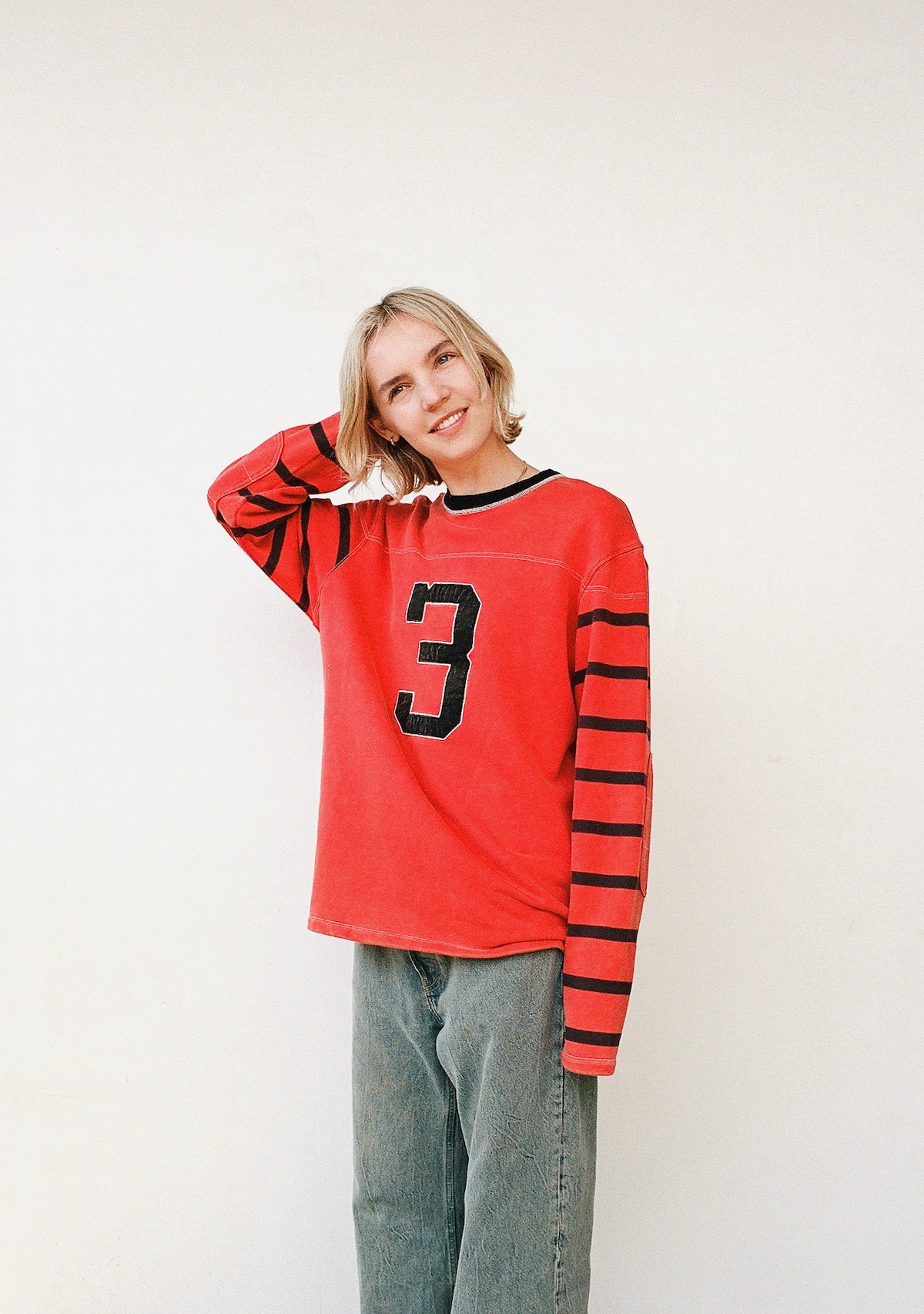
The Japanese House has already kicked off a tour in the States, playing festivals like Coachella and Lollapalooza as well as headlining shows. Earlier in the summer, she supported Maggie Rogers’ Don’t Forget Me tour. When touring, Bain says a level of disconnect from the songs’ content is needed due to their highly personal nature. “I think it would be unsustainable to feel the level of emotional connection you feel to the songs when you write them every night,” Bain believes. “The songs become less about the content [and] more about the reaction of the crowd.”
Bain especially enjoys playing her new single, “:)” [pronounced “Smiley Face”] due to its cheery sound and lyricism.
What inspired this change in trajectory? “Not being depressed anymore,” she laughs. “I wrote that song kind of as a joke,” she admits. “It’s just easier to be free if you do it like that.”
— —
:: stream/purchase 🙂 here ::
:: stream/purchase In the End It Always Does here ::
:: connect with The Japanese House here ::
Stream: “:)” – The Japanese House
A CONVERSATION WITH THE JAPANESE HOUSE
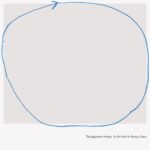
Atwood Magazine: Your latest album is quite vulnerable and raw. How do you find this vulnerability translates to the stage?
Amber Bain: I think it depends, night to night, because it’d be unsustainable to sort of feel the level of emotional connection to the songs that you feel when you write them, every night. I think you’d run yourself into the ground so the songs become less about the content. They become more like the reaction of a crowd. And often a song like “Boyhood,” for example, that ties in with my own dysphoria and battling with certain aspects of what’s made me m[yself] growing up. It’s actually arguably quite a depressing, inward song, but performing it is one of my favorites because [of] the fact that people feel connected in the crowd through things like gender dysphoria or being queer. It’s the one that I really feel the queers connect with most. And so it’s my favorite to play. It’s really different playing them than writing them, is what I’m trying to say.
How do you navigate exploring such difficult, heavy topics within pop music, where issues such as queer heartbreak are more uncommon?
Amber Bain: I mean, to be honest, I don’t navigate it. I think the whole point for me is that I don’t really censor or filter what I’m writing about, and I don’t take into account having to talk about it or doing interviews, or how it’s going to be received. I think that’s what makes it honest, is the fact that it’s actually coming straight from my subconscious. The first thing I think, I say, and I think that honesty and nature of speaking is maybe why a lot of people can connect with it. Because I’m not really like hiding behind anything or trying to flesh it out with metaphor or poetics; I’m just saying what I think.
And so, in all honesty, I don’t really know how to navigate it. I kind of just say the truth, and it hasn’t really gotten me in any trouble, because I don’t think anything I’m talking about is wrong. I mean, it shouldn’t be avant-garde to talk about a queer relationship. It shouldn’t be avant-garde to talk about a throuple. I think treating it as though I’m talking about any other straight relationship is the only way I would ever approach it.
It shouldn’t be avant-garde to talk about a queer relationship. It shouldn’t be avant-garde to talk about a throuple. I think treating it as though I’m talking about any other straight relationship is the only way I would ever approach it.
You originally aimed to release music with an air of anonymity, and now you’re headlining tours. What has the transition into the public eye been like?
Amber Bain: Well, I think the anonymity thing was kind of a thing that papers and media liked to say. I was obviously called The Japanese House. I don’t love having photos taken of me, so I think not using my own name became this kind of, striving for anonymity thing. But actually, I was just an 18 year old and didn’t really think anyone was going to hear my music.
The things I’m writing about are super personal, so it doesn’t really feel that weird when my fans know a lot about me, because I’m already giving it all away in the songs anyway. But, there’s always a weird shift into accepting that people have an idea of you, and that’s not necessarily who you see yourself as, but you have to accept that they’re throwing an image of themselves onto you. The only thing I don’t like is when fans know when I’m flying or something, like on a personal trip to the airport, then it freaks me out. But that’s pretty much it. I’m pretty chill other than that.
You’ve been a big fan of collaboration, working with artists such as Matty Healy, George Daniel, Charli XCX, and Katie Gavin. What does your songwriting practice look like solo, and how does having collaborators change this?
Amber Bain: Up until this last album I [was] very guarded and protective of my songwriting process. I don’t really let anyone in because I find it hard to create unless I’m completely in contact with my subconscious or in that stream of consciousness. I find that really hard to tap into. It’s almost like you have to rid yourself of your ego in order to let something else come in. I think [with] this album, I learned to be more be less self aware around other people. I guess that just means more confidence. Me and Katie [Gavin] wrote a song together and Chloe [Kraemer] is always very involved [in the] lyrics.
I still find I need to be on my own. I can’t workshop lyrics for someone, it’s just not my style, because it’s so personal. I can workshop lyrics for someone else, but not for my stuff. Being a woman, or being not a man, it’s really easy to want to prove yourself, because everyone expects that you don’t write your own songs and you don’t know how to produce and you’re constantly having to show like, “I can do this.” I think I was really put off by collaboration, especially with men previously, because I was afraid that they’d get all the credit. Now I think I’m less bothered about receiving credit. I’m more interested in making the song the best it can be. And if that means people think Matthew Healy wrote all my songs, so be it.
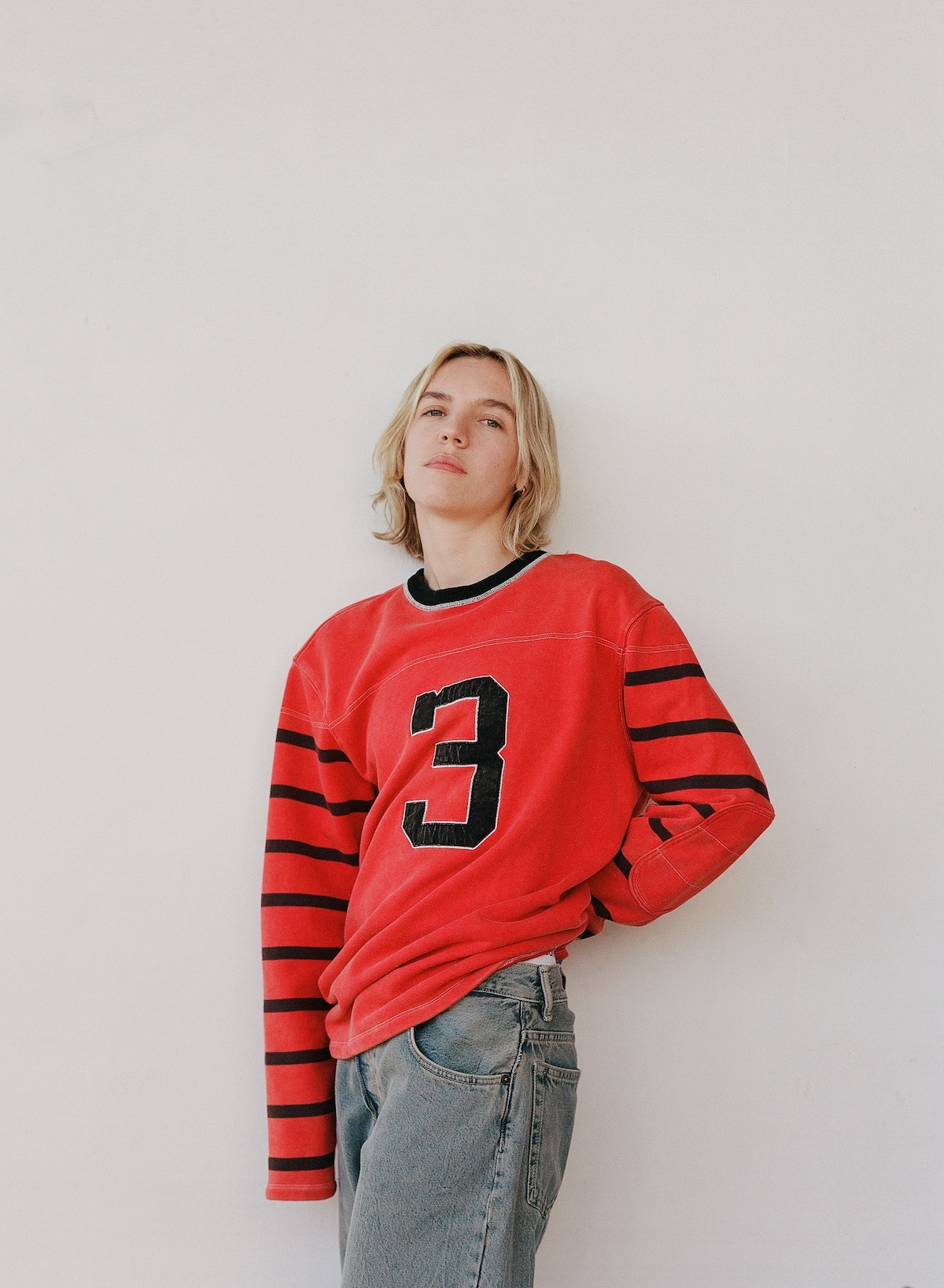
Which artists did you gain the most inspiration from for this album? Did you gain inspiration from any other media, like books or movies?
Amber Bain: I was reading a lot of poetry when I was writing this album. I was listening to this podcast, “On Being,” constantly with Krista Tippett, and she interviews a lot of poets. I would listen to one of those and then read lots of that poet’s work. I really was in my Mary Oliver phase. She’s a classic poet [and there’s] something about her. I was reading a lot of Derek Jarman diary entries. He’s this gay artist/gardener/filmmaker, and he wrote diaries. I was really reading a lot of those. There’s one final diary as he’s dying of AIDS, and it’s just heartbreaking.
I was more into reading than I was listening to music during this album. Artists like the Blue Nile. There’s something about that way of recording instruments that’s never going to grow old for me, I think it’s timeless and chic the way that they record strings. They use strings and synths interchangeably, and you can’t even tell which is which. I think that’s so cool. There’s an unspoken narrative. There’s something in his melodies that tells such a story that I find really inspiring. And then those all encompassing bands like Fleetwood Mac, Blue Nile, “Play It On My Radio” by Nikki & The Dove, that kind of classic feel, but it still feels fresh somehow. That’s what I was going for.
The album cover is so beautiful and timeless. Could you speak more about how this cover came to be, and how it reflects these cyclical relationships explored in the album?
Amber Bain: The cover was really difficult. I really struggle with album art, not because I don’t care about it, but because I care about it so much. I’m not a visual artist, really. I have a lot of ideas, but I don’t really know how to execute all of them. But imagine if an artist spent ages making this painting, and then it’s like, “Oh, by the way, can you just quickly make a song to put for the Instagram release?” I mean, it’s so strange that you have to intertwine these two art forms, and I find it really stressful because I’m so particular about it. We did loads of shoots, and I was working with a really cool creative director, Max Barnett. He’s amazing, and we did so many cool things, but nothing felt right.
It didn’t really feel right to have a photograph. I wanted something really succinct and classic, and I was thinking about what the title was. Obviously it’s called “In the End, It Always Does.” In a way, that title for me is cyclical, because in the end, it always does. I was thinking about circles a lot, and I was thinking about how that is a massive theme throughout the album, how everything is cyclical. Even in “Baby Goes Again,” I’m going around in circles. I’m gonna keep doing the same thing again and again, but at least I keep learning as I go. And so I decided to draw a circle. I just decided that the simple nature of it fit the album so well that I didn’t really need anything else. I was happy with it and still am, which is a miracle.
I feel like it's a very recognizable sort of symbol.
Amber Bain: Yeah, it’s nice. I’ve seen lots of people get circles tattooed, which is crazy, but it’s nice.
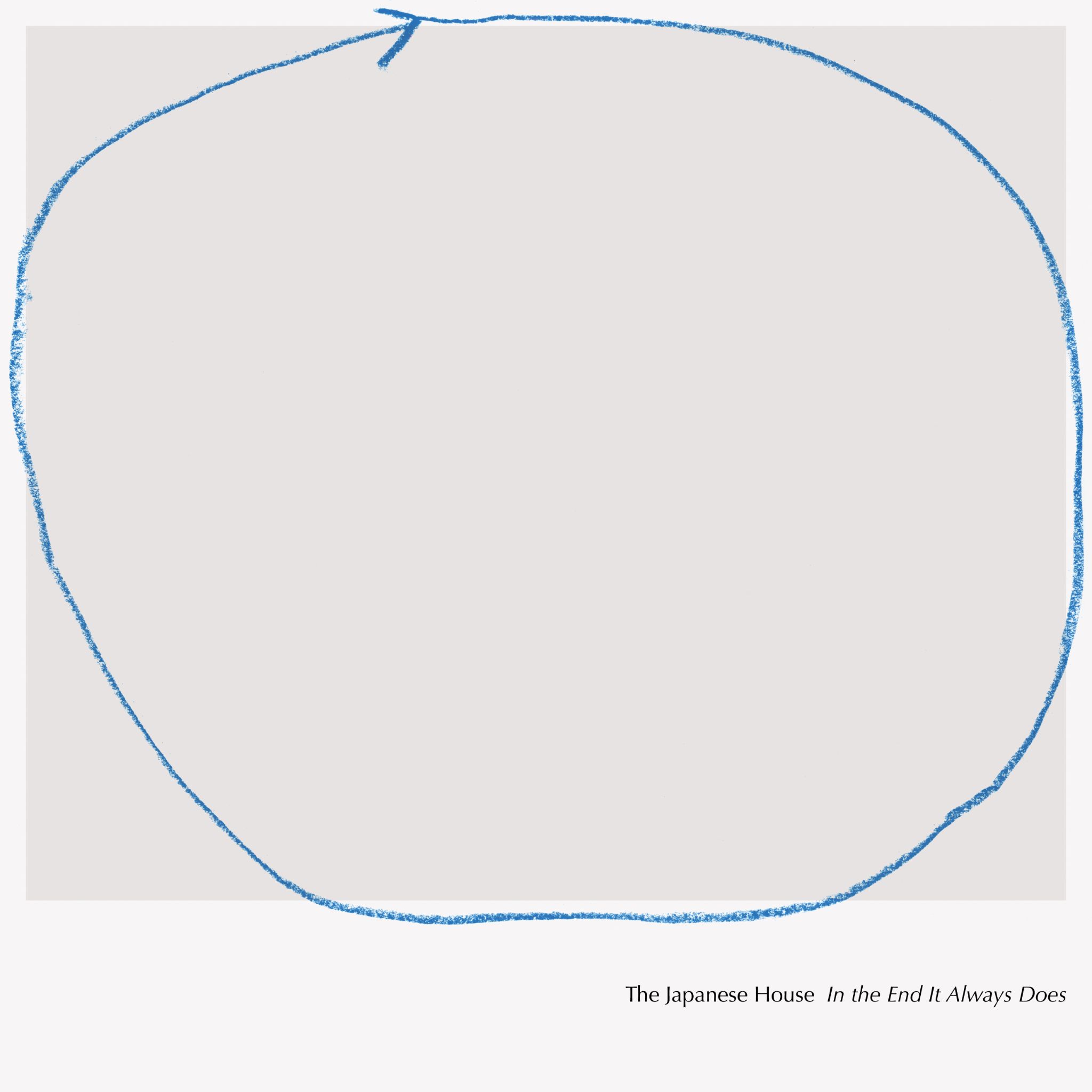
“Smiley Face” is definitely a summer love song. What inspired you to veer off in a slightly different direction?
Amber Bain: Not being as depressed anymore. I wrote that song kind of as a joke, and I do that a lot when I’m writing a pop song. Write a joke song and then it usually turns into something that’s quite good. I think it’s because you’re not writing it thinking, “Oh, this is going to be part of my identity.” So you can sort of let go, and you don’t have to have any embarrassment. It’s just easier to be free if you do it like that. And then I ended up really liking the song and using it. It was written when I was talking to my then-girlfriend, who I met on a dating app. I’d been absolutely psychotic and booked a plane ticket to go meet her.
I wrote this song before I’d met her, and I sent it to her, and I was like, she’s either going to be think I’m freak, or she’s going to think it’s amazing. Luckily, she loved it, but it could have gone very wrong. It kind of captured that feeling at the beginning of the relationship when you’re basically high on drugs, and you’re just filled with dopamine and oxytocin. You’re just completely fueled by that. I like that it captures that period of time. I still like listening to it, and I love playing it. It’s really fun song to play live. It’s about time I had a happy one to be honest!
Talking to someone, she lives in the States
She could be anyone,
and we’ve been staying up ’til late
But it’s fine because she said that sometime
Her friend Addi wants to meet me
Magdalena at the Tate?
Well, in three weeks,
I’ll be getting off a plane
Seen it written down,
but how do I pronounce her name?
My friends all say it’s crazy
You know what, maybe it is
Who cares
‘Cause something’s happening
I feel happier
I could be losing my mind
But something’s happening
Your NPR Tiny Desk was a lot more acoustic than the album. How did you adapt to the limitations of performing in this format, and how is it different from a typical concert?
Amber Bain: I was absolutely shitting myself to be honest. I wish I could do it again, because we’d spent so long like doing everything on in ears to track and click and where, whatever. It was the first time in a long time I sung into a room, not into a microphone with no tuning. It was so difficult. It’s so hard if you’re not used to doing that kind of music. And now and now, like we as I think that probably kicked us up the ass of it. As a band now, we perform a lot more off track and off click. When we do radio sessions now, we’re all in the room, we don’t wear headphones, and I really like that. But it was really difficult. I really like playing like acoustic versions of [songs]. Recently I’ve been playing a sort of country acoustic version of “Boyhood” live. I just really love it.
I think going on tour with Maggie Rogers was really inspiring, because she, they, they really have that much track, and they like, she’s has no tuning on her vocal, and she’s like, a real performer, like, she’s like, I’m gonna be a good I’m gonna don’t need tuning, because I’m gonna make sure I’m amazing at singing every night. Like, this is our job. I don’t see myself as a singer, I see myself as a producer, but it’s inspiring to be around that because it makes you think I actually can sing if I practice this and hone this in, like, it would be like such a much more collaborative music. Cool experience on stage, and like, my band is so talented, so, yeah, we’re doing a lot more of that now. So it was kind of inspiring – the whole Tiny Desk thing.
What is your favorite thing about touring?
Amber Bain: The shows are my favorite thing, obviously. A good show is what the whole point is. But like in the day to day? I’m bringing my dog this next tour, and I really love having her [there] I love going for a walk with her, going for a coffee, reading my book somewhere. I love it when the rider gets there so I can make a little sandwich. That’s pretty much the highlight. I’m also with my best friends. I’m really lucky that my keyboard player [and I have] been friends since we were 11, so nearly 20 years. I’m really lucky that I just get to hang around with my friends all day. I mean, it can be very stressful, but it is good to remember that it’s also amazing.
Do you prefer performing festivals or concerts?
Amber Bain: It’s kind of incomparable. The nature of festival, it’s the thrill. When you play your own show, you know exactly how many people are going to come that night. It’s amazing to pull in new people, see a reflection of how many people you could [get to] want to come and see you. Sometimes you end up doing much bigger sets, much bigger audiences than you would a headline show, but also a headline show when everyone’s paid to see and they know what they’re like, the fans are so connected. And honestly, I really enjoy both.
The hardest one is doing support slots, because you never know what their fan base is going to think of you. But when I did this run with Maggie Rogers, her crowd was so nice, everyone’s so engaged. It was actually a lovely tour. I really enjoyed it.
— —
:: stream/purchase 🙂 here ::
:: stream/purchase In the End It Always Does here ::
:: connect with The Japanese House here ::
— — — —

Connect to The Japanese House on
Facebook, Twitter, TikTok, Instagram
Discover new music on Atwood Magazine
© Carissa Gallo
:: Stream The Japanese House ::

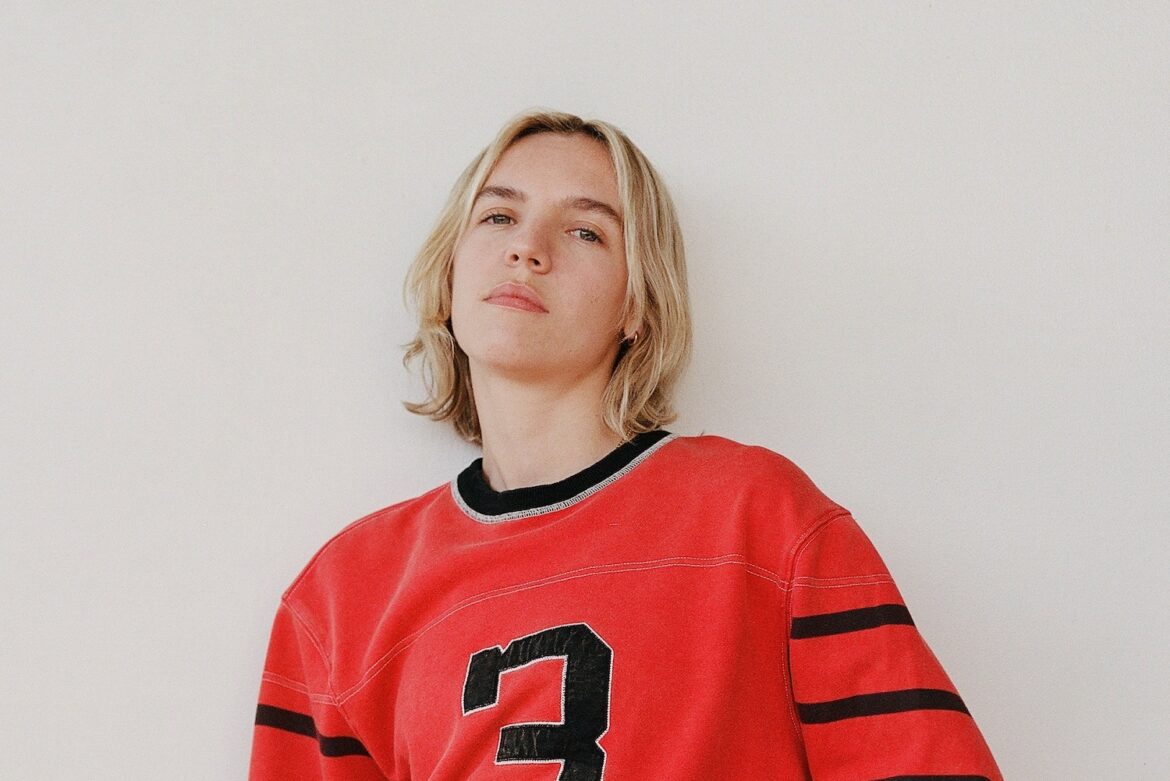
 © Carissa Gallo
© Carissa Gallo